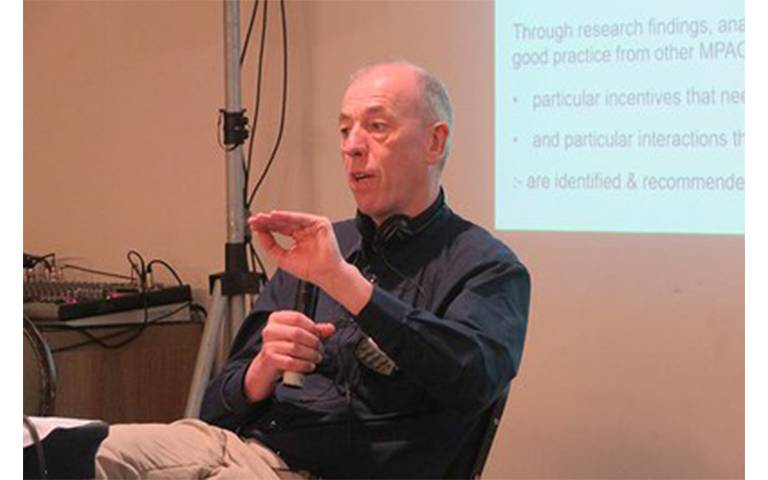Plastic pollution is distracting from bigger environmental threats
12 February 2019
Peter Jones co-authors plea for more radical initiatives

Ocean plastic pollution is distracting from bigger environmental issues such as climate change and overfishing.
This is the argument of Professor Richard Stafford (Bournemouth) and Dr Peter Jones (UCL Geography), in a new paper published on-line in Marine Policy on 13 February, and also featured in The Conversation of 21 February.
The paper criticises the media's focus on plastics pollution, with its implications for simple lifestyle changes such as the adoption of reusable water bottles and other ‘quick fix’ technological solutions.
They call this ‘environmental greenwashing’, encouraged by large corporations and many governments, which ultimately distracts from the real major environmental issues of climate change and biodiversity loss.
Peter Jones explains:
““It is not our intention to question the importance of plastic pollution but to highlight how this fascination with ocean plastics could be at the expense of neglecting other more pressing concerns. We need to place environmental issues at the heart of our political and economic systems, and address overconsumption and overuse of natural resources as the number one priority underlying most environmental challenges. Unless we do this, we can’t save the planet.”
The authors fear that optimism engendered by reducing plastic consumption could lead to apathy (the 'complacency' view) at a crucial time for the application of the more radical actions that are urgently needed to mitigate climate change.
While the actual environmental implications of plastic pollution are unknown, many studies show little direct toxicity effect and there is little data on its population-level effects on wildlife.
This contrasts with the need, well established in recent international scientific reports, to address climate change and reduce biodiversity loss.
Richard Stafford explains:
““In terms of reducing plastic pollution, there’s a huge emphasis on individual choices, such as refusing single-use coffee cups or plastic straws. There’s also a range of technological solutions, from the Ocean Clean-up project, which is trying to ‘sieve’ plastic from the ocean directly, through to new plant-based plastic alternatives. These individual choices and technological ‘fixes’ are simply minor tweaks to a political and economic system which needs a major overhaul, rather than allowing ‘business as usual’ to continue.”
Peter Jones concludes:
““While small steps have been or are planned to help reduce plastic waste, this should not prevent the large-scale systemic changes needed internationally to tackle all environmental concerns. These include longer-term, more effective solutions to the plastic problem, extending to more radical large scale initiatives to reduce consumption, decarbonise economies and move beyond materialism as the basis for our wellbeing.”
See
- Marine Policy: ‘Viewpoint’ – Ocean plastic pollution: A convenient but distracting truth?
- The Conversation: Climate change: plastic pollution obsession distracts attention from biggest environmental challenge facing the planet, 21 February 2019
- The Guardian, 12 Oct. 2018: Reusable coffee cups are just a drop in the ocean for efforts to save our seas
- Rick Stafford
 Close
Close

